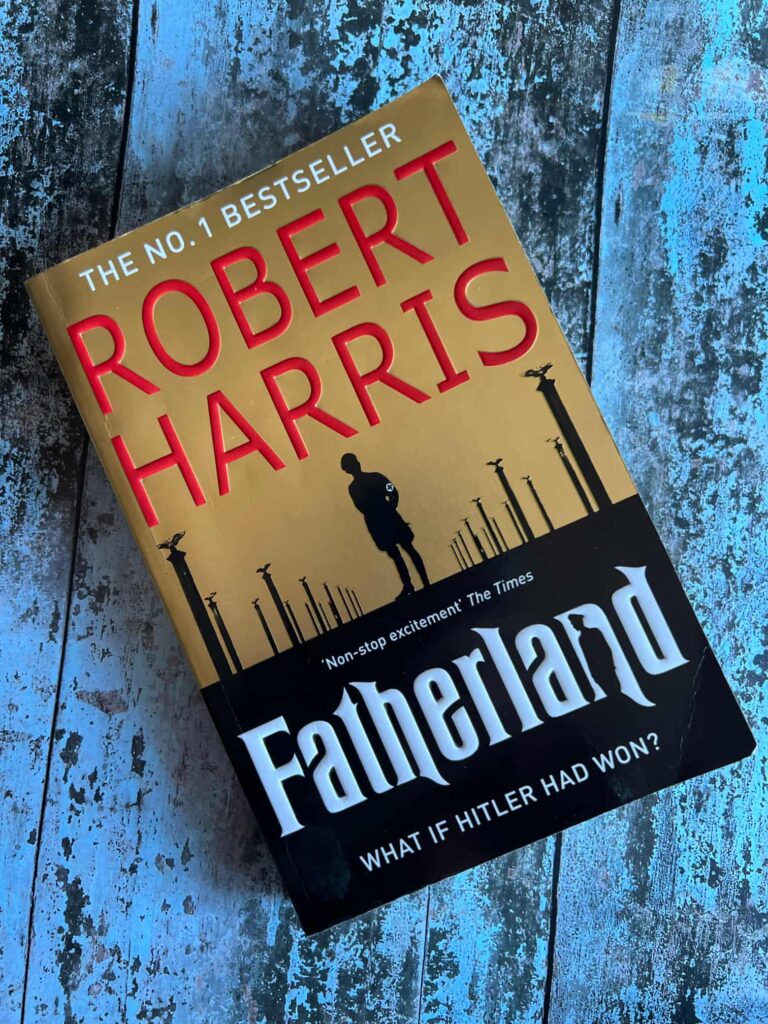10% discount on ALL themed books
Dystopian novels are a popular genre of literature that present a dark and oppressive view of the future. These novels often depict societies that have descended into chaos, where oppressive governments and/or social norms control every aspect of life. They are cautionary tales that serve as warnings about the dangers of totalitarianism, oppression, and unchecked power.
The genre of dystopian literature has been around for centuries, but it really took off in the 20th century with the rise of totalitarian regimes like Nazi Germany and the Soviet Union. Many of the most famous dystopian novels were written during this time period, including George Orwell’s 1984, Aldous Huxley’s Brave New World, and Ray Bradbury’s Fahrenheit 451.
One of the defining characteristics of dystopian novels is that they often depict a world that is the opposite of the author’s vision of utopia. In other words, dystopian novels are a negative version of a utopia, a world in which everything is perfect. However, in a dystopian society, everything is wrong, and life is a constant struggle against oppression, conformity, and conformity. The dystopian novel is often set in a future time period, where the world has undergone some sort of catastrophic event that has fundamentally changed the way that society functions. This event can take many forms, such as a natural disaster, a war, or a technological breakthrough that has gone wrong. Whatever the cause, the world that emerges from the event is one in which human freedom and autonomy are severely curtailed.
One of the most famous examples of this type of dystopian world is George Orwell’s 1984. In this novel, the world is ruled by a totalitarian government called “The Party” which controls every aspect of citizens’ lives. People are not allowed to think for themselves or have any sort of independent thought. Instead, they are forced to conform to the will of The Party and its leader, Big Brother.
Another hallmark of dystopian novels is the presence of an oppressive government that uses violence and coercion to maintain its power. The government often has a secret police force that monitors the activities of citizens and punishes anyone who opposes it. In many cases, the government is also highly militarised, with the military serving as its enforcers. One of the most famous examples of an oppressive government in dystopian literature is the Capitol in Suzanne Collins’ The Hunger Games. In this novel, the government is run by a small elite class that controls every aspect of citizens’ lives. They use the Hunger Games, a brutal competition in which children fight to the death, as a means of maintaining their power and reminding citizens of their helplessness.
Dystopian novels often explore themes of resistance, rebellion, and individualism. In many cases, the protagonist of the novel is a rebel who opposes the oppressive government and fights for freedom and autonomy. These characters are often highly individualistic, rejecting the conformity that is imposed on them by the society they live in. In Margaret Atwood’s The Handmaid’s Tale, the protagonist is a woman named Offred who lives in a dystopian society in which women are enslaved and used only for their reproductive abilities. Offred is a rebel who fights against the system and tries to regain her freedom. Her struggle is one that many readers can identify with, as it speaks to the desire for autonomy and self-determination that is central to human nature.
Overall, dystopian novels are powerful works of literature that speak to the human desire for freedom and autonomy. They warn us about the dangers of unchecked power and the importance of individualism and resistance. They are cautionary tales that remind us to remain vigilant against the forces of oppression and to fight for a better future.
This weeks theme picks…
The Hunger Games – Suzanne Collins
“The Hunger Games” is a thrilling and thought-provoking novel set in a dystopian future where a totalitarian government controls its citizens by forcing them to compete in an annual televised event called the Hunger Games. The book’s protagonist, Katniss Everdeen, volunteers to participate in the games in place of her younger sister and becomes a symbol of hope for the oppressed districts of Panem.
One of the strengths of “The Hunger Games” is the vivid and detailed world-building that Collins has created. She has created a world that is both horrific and fascinating, with well-drawn characters and a fast-paced plot. The book raises important questions about power, oppression, and the nature of humanity.
The characters in “The Hunger Games” are well-developed and complex, with each of them having their own motivations and desires. Katniss is a strong and resourceful heroine who is easy to root for, and her relationships with the other characters are nuanced and believable.
The writing style is clear and accessible, making the book a quick and engaging read. Collins has a talent for creating tension and suspense, and the book is full of action and excitement.
Overall, “The Hunger Games” is an excellent book that is well worth reading. It is a compelling and thought-provoking story that will stay with you long after you finish reading it. If you enjoy dystopian fiction or young adult literature, then you should definitely give this book a try.
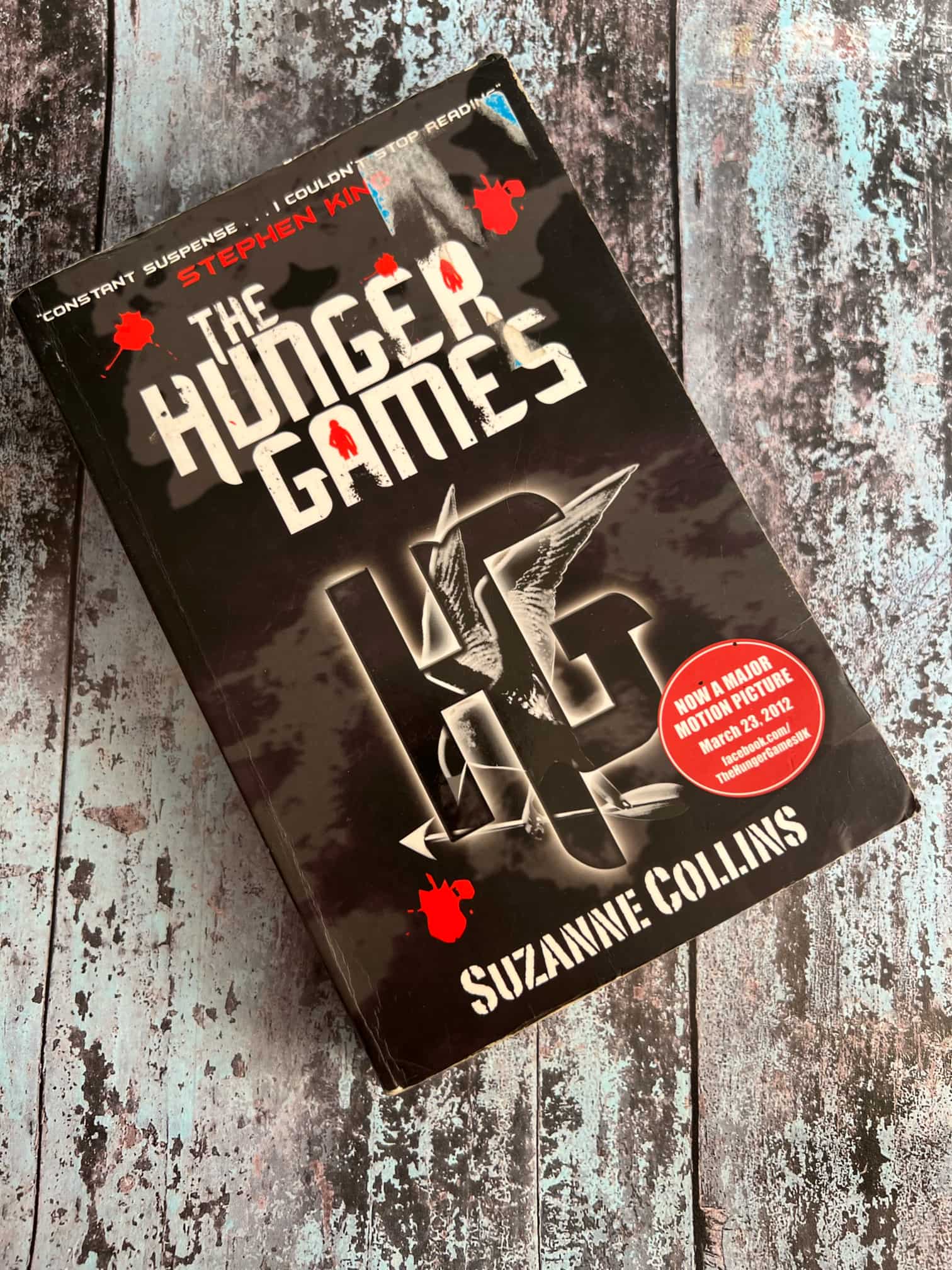
The Hunger Games
Mockingjay – Suzanne Collins
Mockingjay is the final book in the “Hunger Games” trilogy and continues the story of Katniss Everdeen, who finds herself thrust into the role of the leader of a rebellion against the Capitol of Panem. The book follows Katniss as she struggles with her newfound responsibility, grapples with the consequences of war, and tries to protect those she loves.
One of the strengths of “Mockingjay” is the emotional depth that Collins brings to the story. The book explores the trauma and aftermath of war, the toll it takes on individuals and societies, and the difficulty of finding hope in the midst of despair. The characters in the book, especially Katniss, are complex and flawed, and their struggles feel authentic and relatable.
The plot of the book is well-paced and full of twists and turns, keeping the reader engaged throughout. The book also expands on the world-building of the previous books, providing more insight into the history and politics of Panem.
The writing style of “Mockingjay” is clear and direct, conveying the emotional intensity of the story without becoming overly melodramatic. Collins’ prose is efficient and effective, allowing the characters and plot to take center stage.
Overall, “Mockingjay” is a satisfying conclusion to the “Hunger Games” trilogy, providing a nuanced and emotionally resonant exploration of war and its aftermath. While it may not be as action-packed as the previous books in the series, it more than makes up for it with its depth and complexity. If you enjoyed the first two books in the series, then “Mockingjay” is definitely worth reading.
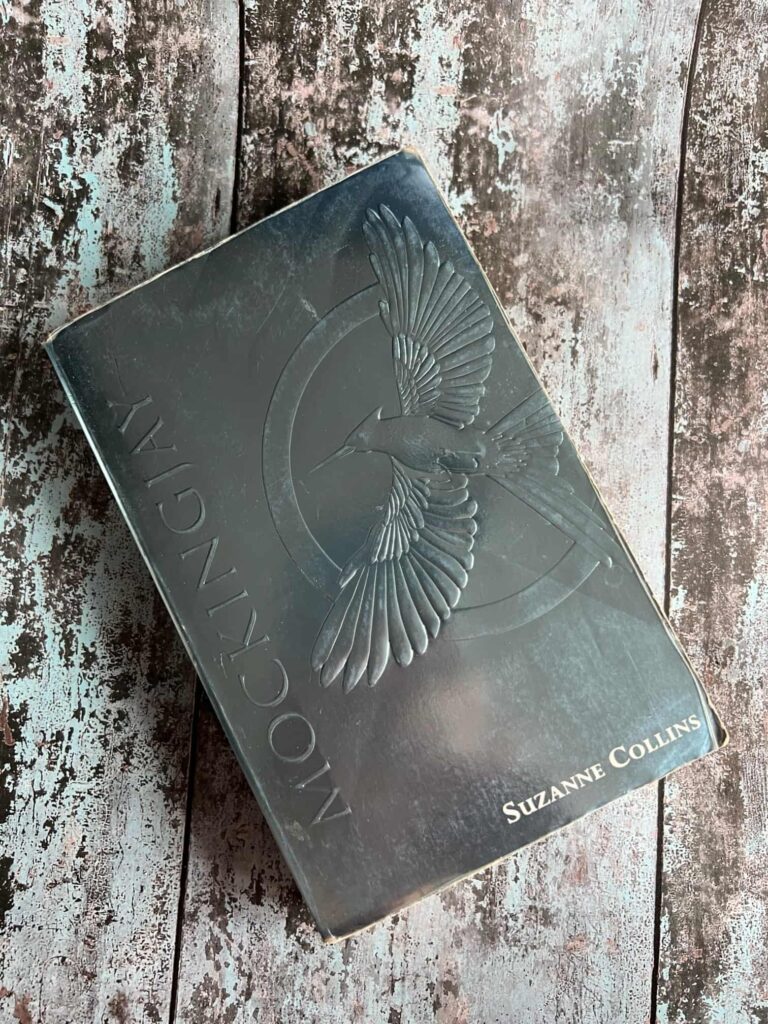
Mockingjay
Oryx and Crake – Margaret Atwood
“Oryx and Crake” is a dystopian novel set in a post-apocalyptic world where genetic engineering has run amok, resulting in a society where humans and genetically modified creatures coexist. The novel follows the story of Snowman, the last remaining human, as he navigates his memories of the past and his present reality, while struggling to come to terms with the events that led to the collapse of civilisation.
One of the strengths of “Oryx and Crake” is the depth and complexity of its world-building. Atwood creates a vivid and terrifying vision of the future, exploring the ethical and moral implications of scientific advancements and the impact they can have on humanity. The characters in the novel are well-drawn and multi-dimensional, with complex motivations and desires.
The novel is also a poignant exploration of the human condition, with Atwood delving into themes such as love, loss, and the search for meaning in a world that seems devoid of it. The writing style is elegant and poetic, with Atwood’s prose imbuing even the most mundane moments with a sense of beauty and grace.
While “Oryx and Crake” is a challenging and often bleak read, it is also a thought-provoking and rewarding one. Atwood’s skilful storytelling and compelling characters make this a book that will stay with you long after you’ve finished reading it. If you enjoy dystopian fiction or speculative fiction that tackles big ideas, then “Oryx and Crake” is definitely worth checking out.
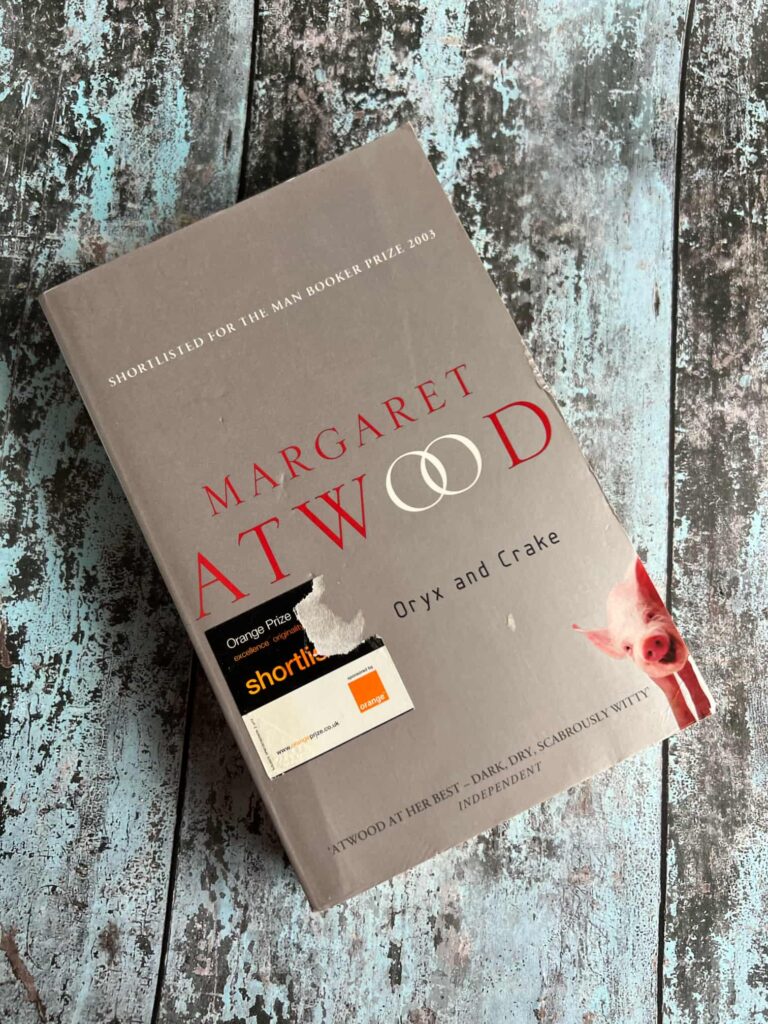
Oryx and Crake
Slaughterhouse Five – Kurt Vonnegut
“Slaughterhouse-Five” is a classic anti-war novel that follows the story of Billy Pilgrim, a soldier who becomes “unstuck in time” and travels through different periods of his life, including his time as a prisoner of war during the bombing of Dresden in World War II. The novel is a surreal and experimental work that explores the psychological and emotional toll of war on both individuals and society.
One of the strengths of “Slaughterhouse-Five” is Vonnegut’s ability to capture the absurdity and horror of war in a way that is both poignant and darkly humorous. The book is filled with memorable characters and scenes that highlight the futility and senselessness of violence, while also emphasising the resilience and humanity of those who survive it.
The novel also touches on larger themes such as free will, fate, and the nature of time. Vonnegut’s writing style is distinctive, with a dry wit and a unique narrative structure that jumps between different time periods and perspectives.
While “Slaughterhouse-Five” is a challenging read, it is also a deeply moving and thought-provoking one. The novel’s unconventional style and anti-war message have made it a classic of American literature, and its relevance continues to resonate today. If you are interested in books that explore the impact of war on individuals and society, or if you appreciate experimental and unconventional storytelling, then “Slaughterhouse-Five” is definitely worth reading.
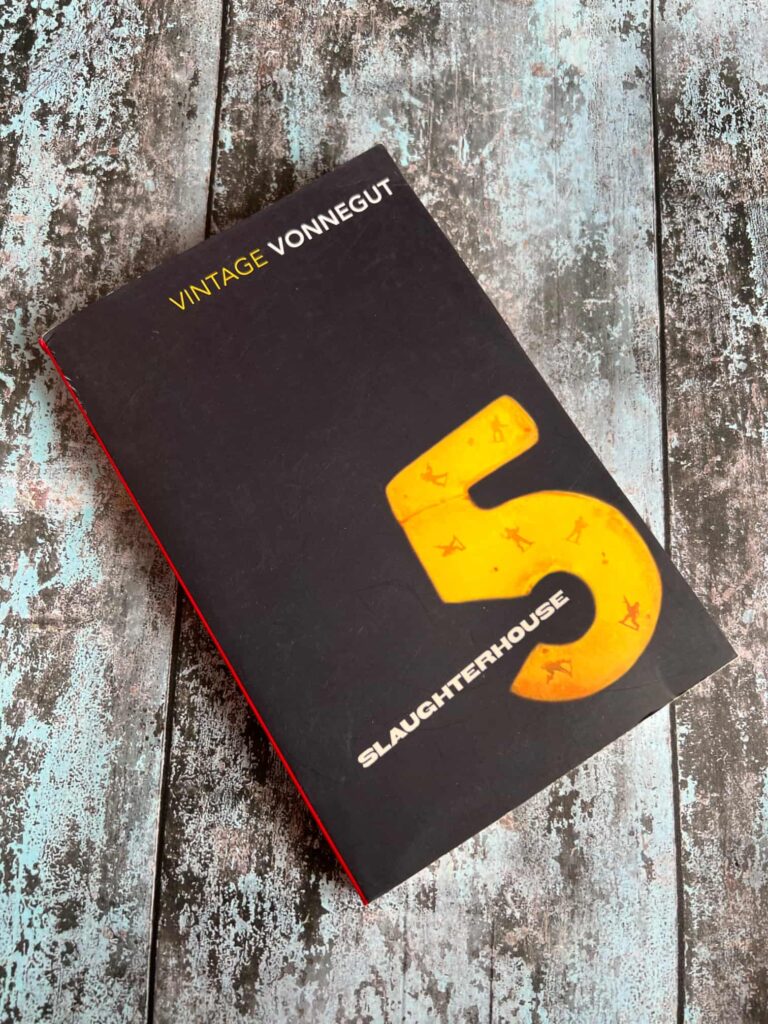
Slaughterhouse-Five
Zombie Apocalypse – Stephen Jones
“Zombie Apocalypse” is an anthology of zombie-themed stories edited by Stephen Jones. The book was first published in 2010 and features contributions from various authors, including Ramsey Campbell, Brian Lumley, and Michael Marshall Smith.
The book is divided into three sections, with each section focusing on a different stage of the zombie apocalypse. The first section, “The Fall,” depicts the initial outbreak and the chaos that ensues. The second section, “The Wasteland,” portrays the aftermath of the outbreak and the struggles of the survivors. The final section, “The Survivors,” features stories of hope and resilience in a world overrun by the undead.
Overall, “Zombie Apocalypse” has received mixed reviews. Some readers have praised the book for its diverse range of stories and its fresh take on the zombie genre. Others, however, have criticised the book for its uneven quality, with some stories being much stronger than others.
In conclusion, if you’re a fan of zombie fiction and are looking for a collection of stories that explore the genre from different angles, “Zombie Apocalypse” by Stephen Jones might be worth checking out. However, if you’re looking for a more cohesive or consistently strong narrative, you may want to consider other options.
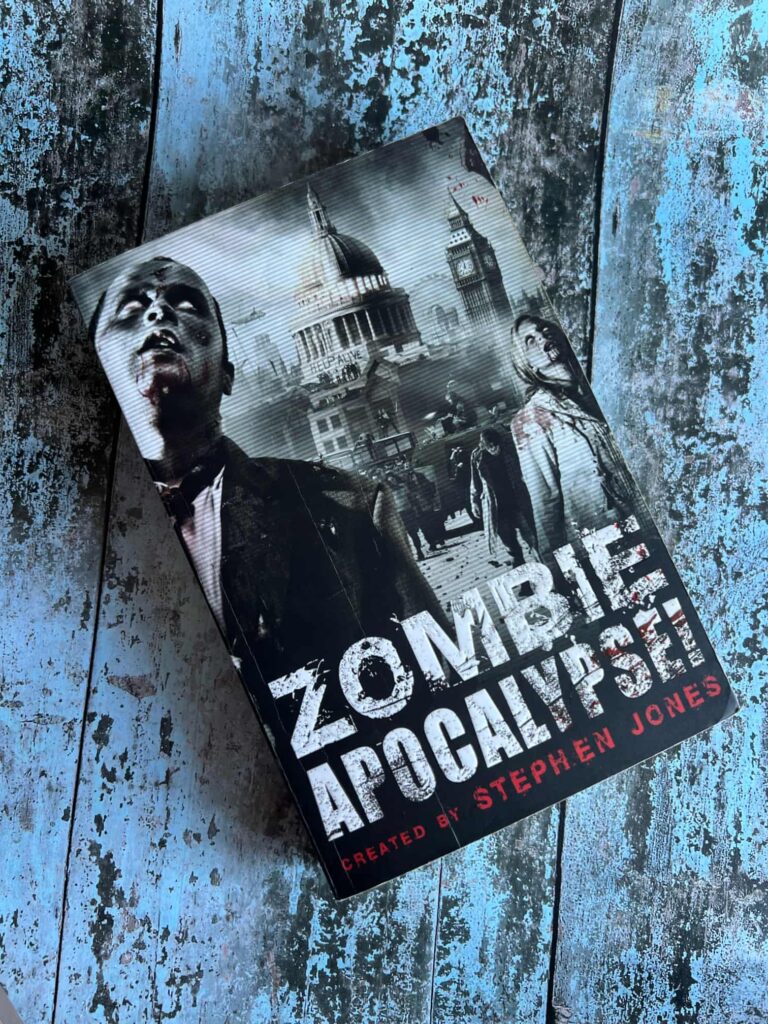
Zombie Apocalypse
Fatherland – Robert Harris
“Fatherland” is a historical thriller novel by Robert Harris, first published in 1992. The story is set in an alternate history where Nazi Germany has won World War II and emerged as a superpower, with Adolf Hitler still alive and ruling the country in 1964.
The book follows Xavier March, a detective with the Kriminalpolizei (Kripo), as he investigates the murder of a high-ranking Nazi official. As he delves deeper into the case, March uncovers a conspiracy that could threaten the stability of the Nazi regime and its hold on power.
Harris’s writing is taut and atmospheric, and he does an excellent job of immersing the reader in this alternate reality. The characters are well-drawn, particularly March, who is a compelling and sympathetic protagonist. The plot is engaging and full of twists and turns, with a satisfying resolution that ties everything together.
What makes “Fatherland” particularly interesting is the way it explores the idea of what could have happened if the Nazis had won the war. Harris doesn’t shy away from the horrors of the Nazi regime, but he also shows how the citizens of this alternate Germany have been indoctrinated and brainwashed into believing in the superiority of the Aryan race and the legitimacy of the Nazi ideology.
Overall, “Fatherland” is a well-written and thought-provoking thriller that is definitely worth reading, particularly for fans of alternate history or World War II fiction.
